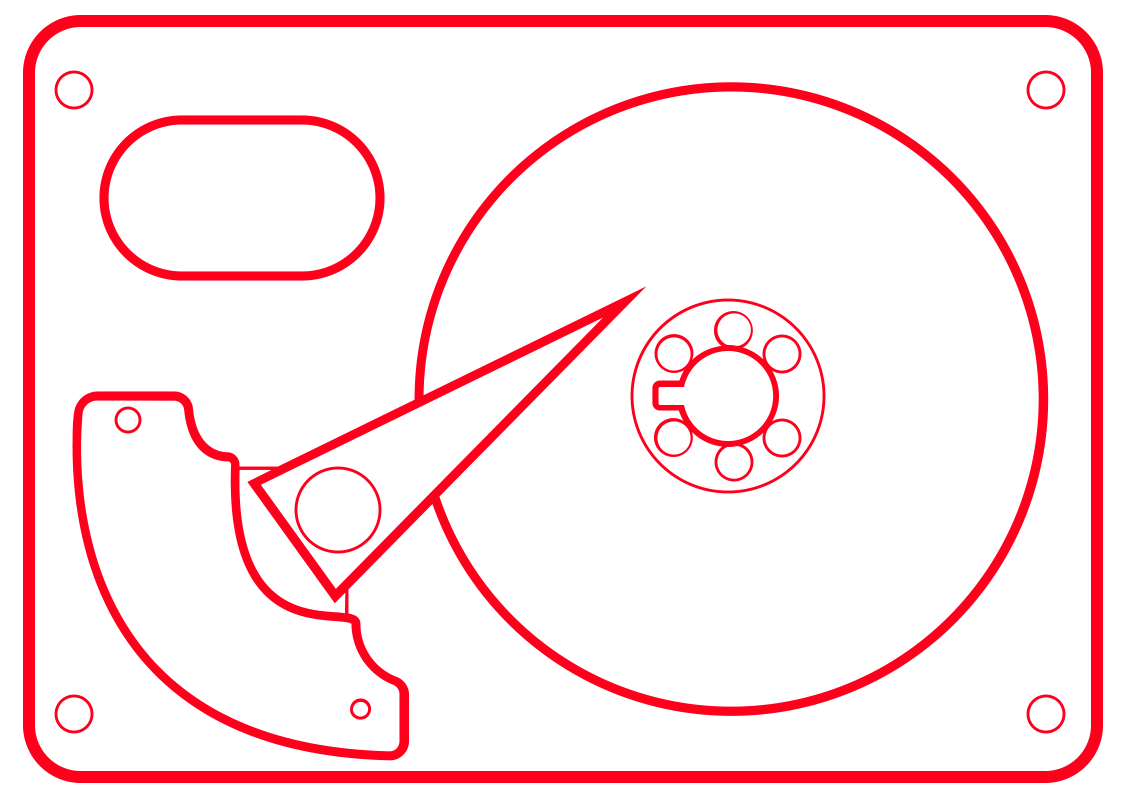If you’re one of the few people who can hear your hard drive, don’t worry, drives do make noise so there probably isn’t an issue. In fact, all hard drives make noise, it’s just that most people can’t hear it. But if you’re sensitive to sound, you might want to invest in some earplugs, because it’s only going to get louder from here.
It’s perfectly normal for your hard drive to make a bunch of weird noises while it’s reading and writing data. In fact, some drives even do off-line scans, which can make even more noise! So don’t worry if you hear your hard drive making some strange sounds—it’s just doing its job.
There are some noises that are not natural. If you suddenly hear your drive making different noises than usual, you may have an issue with your drive! When an external drive beeps, this can be due to a few different things. Maybe it’s because the drive is getting old and needs a little more power. Or, it could be that the drive is trying to tell you that it’s low on battery. Kidding! If your drive is beeping we here at beeping drive can tell you what the issue probably is.
Beeping Drives
Beeping on a hard drive usually has one of the following causes.
- Don’t drop your hard drive! If you do, the read and write heads might get stuck on the platter. These delicate pieces of equipment are made with tiny components and they’re susceptible to breakage. So be careful with your hard drive and don’t drop it!
- If your hard drive starts beeping, it could be because the spindle motor has failed. This is a common problem that can cause a variety of strange symptoms. If the motor fails, the platters won’t move and that can cause the beeping sound. So if you hear your hard drive beeping, it’s probably because the spindle motor has failed and you should get it fixed as soon as possible.
- If your hard drive starts making a beeping sound, don’t panic! It’s just the spindle motor trying unsuccessfully to spin the platters. This is usually due to a power failure, but it can also be caused by the spindle motor itself failing. Either way, it’s not a good sign and you should probably back up your data as soon as possible or seek our professional data recovery.
- If your hard drive starts beeping, it could be because the USB cable or port isn’t working properly. Usually, the port is the issue, not the cable. This often happens if the machine was physically moved while cords were still plugged into the ports. You can do a bit of troubleshooting by using a different cable or different port and determine the cause by process of elimination. But if all else fails, you may just have a very talkative hard drive.
- If you’re hearing strange beeps coming from your computer, it’s probably your hard drive trying to tell you that it’s about to fail. Back up your data regularly to avoid losing everything, but if you haven’t been, try to retrieve it quickly before the hard drive fails completely. In the meantime, enjoy the strange noises your computer is making!
So as you can see, the most common issue with beeping drives is that the drive beeps due to stuck heads, but there are other issues that can cause the beeping as well. If your drive is beeping and not showing up on your computer, you may want to consider an affordable data recovery service that will save you money.
Ticking Hard Drive
Tick tock, tick tock. It’s the sound of your hard drive slowly ticking away, like a time bomb ready to go off at any moment. But what exactly is causing this ticking noise, and is it something you should be worried about?
First, let’s dispel any myths about the ticking noise. It’s not caused by a virus or malware, and it won’t damage your hard drive or data. In fact, the ticking noise is perfectly normal and is simply the result of the hard drive’s read/write head moving back and forth as it accesses data.
So why does it sound like a ticking time bomb? Well, it’s because the hard drive is a mechanical device with moving parts, and any time you have moving parts there’s potential for noise. When the read/write head moves back and forth, it causes the disk platters to spin and the drive to vibrate, which is what you’re hearing as a ticking noise.
Fortunately, there’s no need to worry about the ticking noise. It’s not a sign that your hard drive is about to fail, and it doesn’t indicate any problems with your data. So go ahead and ignore the ticking noise, and rest assured that your hard drive is just fine.
Don’t forget to yell
If your computer starts making strange noises, it could be a sign that your hard drive is failing. If you hear a loud, irregular noise coming from your computer, it’s probably best to back up your data and get a new hard drive as soon as possible. But before you do that, you might want to try yelling at your hard drive.
It might sound silly, but some people swear by this method. Simply open up your computer case and yell at your hard drive for a few minutes. Be sure to use colorful language; the more creative, the better. Then close up your computer and see if the noise goes away.
Of course, there’s no guarantee that yelling at your hard drive will actually fix the problem. But it’s worth a try, and it might just save you from having to buy a new hard drive. Plus, it’s a lot of fun. So go ahead and give it a shot. Who knows, you might just end up being the next viral internet sensation.
